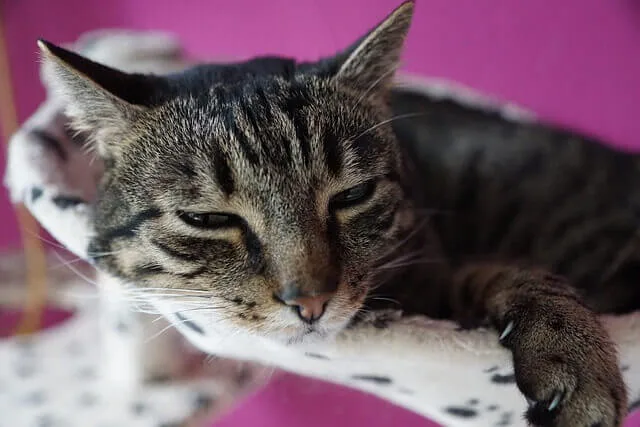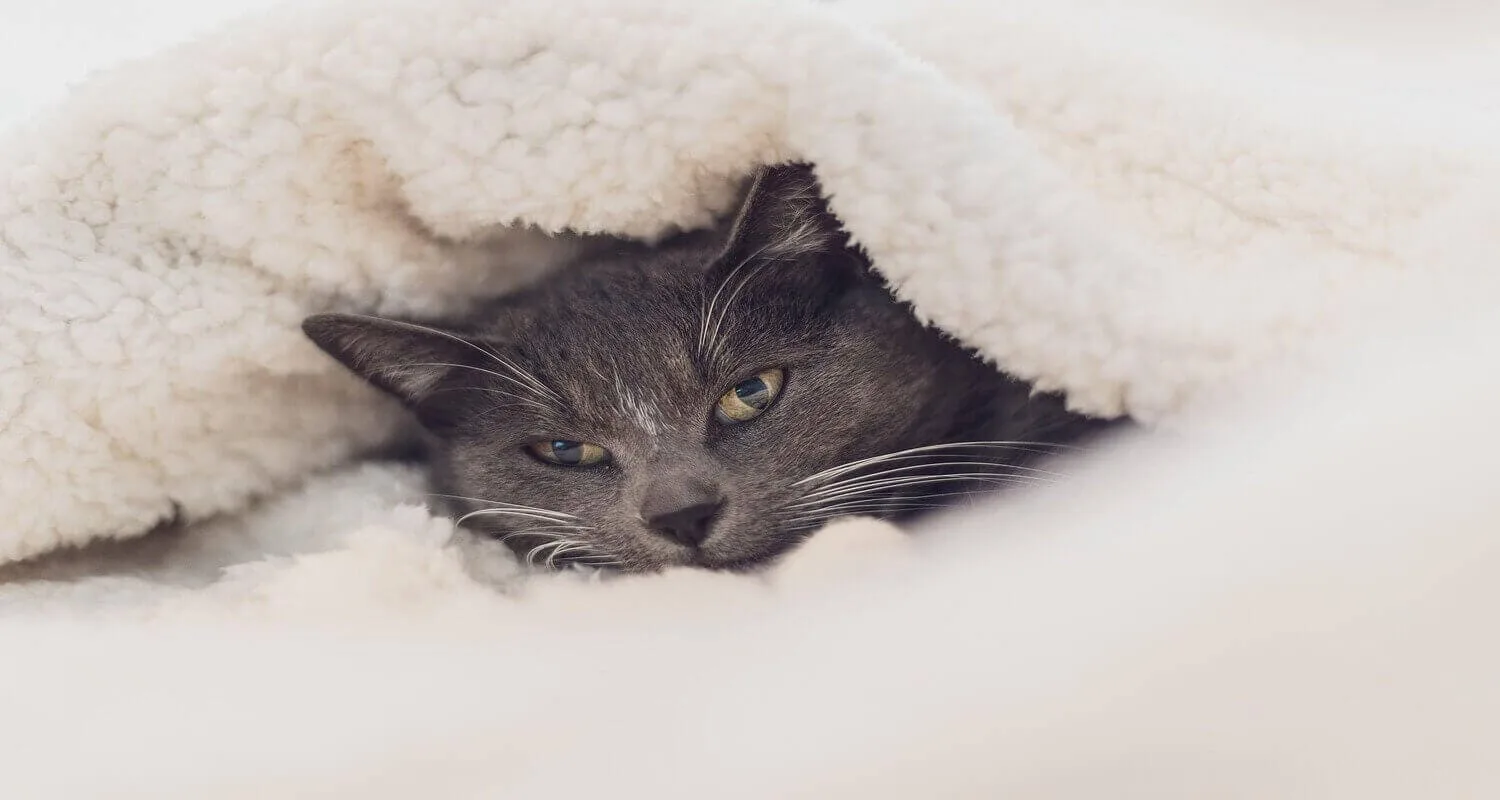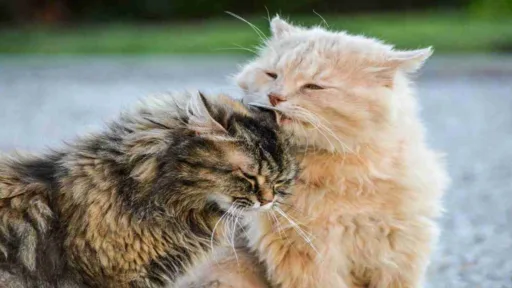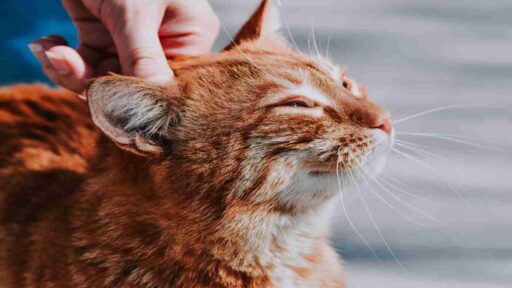Can cats get colds, cats known for their aloof yet endearing behavior, often leave their owners wondering about their health, especially concerning common human ailments. One prevalent concern among cat owners is whether their feline companions can catch colds. In this comprehensive guide, we will explore the intricacies of feline respiratory health, understand the possibility of cats getting colds, and how to care for them if they do.
Understanding Feline Respiratory Infections
Before diving into the specifics of whether cats can get colds, it’s crucial to differentiate between simple colds and more serious respiratory infections that cats may experience. Feline respiratory infections encompass a range of illnesses, including viral and bacterial infections, with symptoms that might mimic a human cold.
Can Cats Get Colds?

Research in veterinary medicine suggests that while cats don’t commonly catch colds caused by human-specific viruses, they can suffer from respiratory infections triggered by specific feline viruses. These viruses can lead to symptoms such as sneezing, nasal discharge, and lethargy, resembling what we associate with a common cold.
How Do I Know If My Cat Has a Cold?
If you suspect your cat might have a cold, there are several signs and symptoms to look out for. Here’s a guide to help you identify if your feline friend is under the weather:
- Sneezing: Occasional sneezing is normal, but if your cat is having frequent sneezing fits, it could be a sign of a cold.
- Nasal Discharge: Check for any unusual discharge from your cat’s nose. If you notice watery or mucus-like discharge, it may indicate a respiratory issue.
- Watery Eyes: Keep an eye on your cat’s eyes. Excessive tearing or discharge may be a symptom of a cold.
- Lethargy: A noticeable decrease in your cat’s activity level could be an indication of illness. If your cat is unusually tired or less playful, it’s worth investigating.
- Change in Appetite: A cold can sometimes affect a cat’s sense of smell, leading to a decrease in appetite. Monitor your cat’s eating habits for any significant changes.
- Coughing: While less common than in dogs, cats with colds may exhibit occasional coughing. If you notice persistent coughing, it’s advisable to consult a veterinarian.
- Fever: Feel your cat’s ears. If they feel warmer than usual, it could be a sign of a fever. However, a definitive diagnosis of fever requires a thermometer.
- Difficulty Breathing: Labored breathing or wheezing is a serious symptom. If you observe any difficulty in your cat’s breathing, seek veterinary attention immediately.
If you notice one or more of these signs, it’s essential to consult with your veterinarian for a proper diagnosis. They can determine whether your cat has a cold or another respiratory issue and provide appropriate guidance on care and treatment. Remember, early intervention contributes to a quicker recovery for your feline companion.
Preventive Measures for Feline Colds
Preventing cat colds involves a combination of a balanced diet, regular veterinary check-ups, and ensuring your cat’s living environment is clean and stress-free. Vaccination against common feline viruses is a key component of preventive care, providing a robust shield against potential respiratory infections.
How Can I Help My Cat With a Cold?
Helping your cat recover from a cold involves a combination of supportive care and, in some cases, professional veterinary intervention. Here are some steps you can take to assist your feline friend:
- Create a Comfortable Environment:
- Provide a warm and cozy space for your cat to rest. Ensure it’s away from drafts and comfortable for their recovery.
- Maintain Hydration:
- Ensure your cat stays hydrated. Offer fresh water and, if necessary, encourage them to drink by using a clean syringe or eye dropper.
- Nutritious Meals:
- Offer your cat a regular, balanced diet. If your cat’s appetite is reduced, consider offering wet food or warming their regular food to enhance aroma.
- Isolation from Other Pets:
- If you have multiple pets, consider isolating the sick cat to prevent the potential spread of the infection.
- Regular Monitoring:
- Keep a close eye on your cat’s symptoms. If they worsen or if you notice any concerning changes, consult with your veterinarian.
- Consult with a Vet:
- If your cat’s symptoms persist or worsen, or if they exhibit severe signs such as difficulty breathing, it’s crucial to seek professional veterinary care promptly.
- Administer Medication as Prescribed:
- If your veterinarian prescribes medication, follow their instructions carefully. Never administer over-the-counter medications without consulting your vet, as some can be harmful to cats.
- Comfort and Affection:
- Provide comfort and gentle affection to reassure your cat. However, respect their need for rest if they prefer solitude during their illness.
Remember that cats can hide signs of illness, so any noticeable changes in behavior or health warrant attention. While mild cases of cat colds can be managed at home, severe cases may require professional veterinary care. Your veterinarian can provide a proper diagnosis and recommend appropriate treatment for your cat’s specific condition.
Boosting Your Cat’s Immune System
A healthy immune system is crucial in preventing and combating feline respiratory infections. Proper nutrition, including a balanced diet rich in essential nutrients, contributes to a strong immune system. Additionally, supplements tailored to your cat’s specific needs can further enhance their ability to fight off infections.
Do Cat Colds Go Away On Their Own?
Mild cases of cat colds may resolve on their own with proper care and supportive measures. However, it’s essential to closely monitor your cat’s symptoms and seek veterinary attention if needed. Here are some points to consider:
- Duration of Symptoms:
- In many cases, mild cold symptoms in cats, such as sneezing or mild nasal discharge, may improve on their own within a week or two.
- Supportive Care:
- Providing a warm and comfortable environment, maintaining proper hydration, and offering nutritious meals can aid your cat’s recovery.
- Veterinary Consultation:
- If your cat’s symptoms persist or worsen, or if they exhibit severe signs such as difficulty breathing, it’s crucial to consult with your veterinarian.
- Professional Diagnosis:
- A veterinarian can conduct tests to determine the specific virus causing the cold, if applicable. This allows for targeted treatment if necessary.
- Prescribed Medication:
- If your veterinarian prescribes medication, follow their instructions carefully. Medications can help manage symptoms and speed up the recovery process.
- Isolation from Other Pets:
- If you have multiple pets, isolating the sick cat can prevent the spread of the infection to others.
It’s important to note that some feline respiratory infections, such as those caused by herpesvirus or calicivirus, can become chronic or recur intermittently throughout a cat’s life. Regular veterinary check-ups and preventive care, including vaccinations, play a crucial role in maintaining your cat’s respiratory health.
While mild cases may resolve on their own, timely veterinary intervention is key for accurate diagnosis and appropriate treatment in more severe cases. If in doubt or if your cat’s condition raises concerns, consulting with your veterinarian ensures the best possible care for your furry friend.
Can Humans Get Cat Colds?

While it’s relatively rare, some feline respiratory infections can be transmitted from cats to humans. These infections are known as zoonotic diseases. However, the transmission of colds from cats to humans is not a common occurrence.
The viruses that typically cause colds in cats are feline-specific and differ from those that affect humans. Cats may suffer from illnesses such as feline herpesvirus or feline calicivirus, and although these infections can be contagious among cats, the risk of transmission to humans is minimal.
To further reduce any potential risk:
- Practice Good Hygiene: Wash your hands thoroughly after handling a sick cat or cleaning their litter box. This simple measure can prevent the spread of any potential zoonotic pathogens.
- Avoid Close Contact: While it’s natural to want to comfort your cat when they’re unwell, minimizing close face-to-face contact can reduce the risk of transmission.
- Regular Veterinary Check-ups: Ensure your cat receives regular veterinary check-ups, vaccinations, and preventive care to maintain their overall health and minimize the likelihood of them contracting or spreading infections.
If you or someone in your household is immunocompromised or has a pre-existing health condition, it’s advisable to consult with a healthcare professional for personalized advice. Overall, with proper hygiene practices and responsible pet care, the risk of humans contracting colds from their cats remains low.
Caring for a Cat with a Cold – Can Cats Get Colds
Creating a warm and comfortable environment for your cat is crucial during their recovery. Providing a cozy bed, maintaining proper humidity levels, and offering nutritious meals are integral parts of caring for a cat with a cold. Regular monitoring and veterinary check-ups ensure your cat is on the path to recovery.
The Importance of Timely Vet Visits – Can Cats Get Colds
Timely veterinary intervention is key to accurately diagnosing and treating feline respiratory infections. A veterinarian can conduct tests to determine the specific virus causing the cold, allowing for targeted and effective treatment. Early diagnosis improves the chances of a full recovery.
While cats may not catch the common cold in the same way humans do, they are susceptible to respiratory infections that exhibit similar symptoms. Responsible pet ownership involves understanding these distinctions, maintaining preventive care, and seeking prompt veterinary attention when needed. By prioritizing your cat’s health, you contribute to a happy and vibrant life for your beloved feline companion.
FAQs
- Is it safe to use a humidifier around my cat?
- Yes, using a humidifier in moderation can help ease your cat’s breathing. Ensure it’s cleaned regularly to prevent mold.
- Should I continue feeding my cat its regular diet during a cold?
- Yes, maintaining a balanced diet is essential for your cat’s overall health. Consult your vet if you have concerns.
- Can outdoor cats get colds more frequently?
- Outdoor cats might be exposed to more potential sources of infection
- Can I give my cat over-the-counter cold medication?
- No, it’s crucial to consult your veterinarian before administering any medication to your cat.
- How long does it take for a cat to recover from a cold?
- The recovery period varies, but prompt veterinary care can shorten the duration of the illness.
- Can I catch a cold from my cat?
- While rare, some feline respiratory infections can be transmitted to humans. Maintaining good hygiene minimizes this risk.
- Should I isolate my cat when it has a cold?
- Providing a separate, comfortable space can help prevent the spread of infection to other pets.
- Are certain cat breeds more prone to respiratory infections?
- Some breeds may be more susceptible, but regular veterinary care and preventive measures can mitigate this risk.




